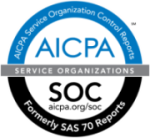

Picking up the pieces after a natural disaster is an exhausting, heartbreaking burden. Cataloguing lost property is just the tip of the iceberg for many disaster victims. Unfortunately, there’s another problem they may not have considered: disaster recovery scams.
A lot of attention is given to the myriad phishing scams that fill our email inboxes, and for good reason: They’re a year-round threat that evolves to match current events (you will probably see fake charity scams immediately following a natural disaster). But it’s important that we don’t forget to watch for good old fashioned in-person scams.
What are disaster recovery scams?
The Federal Trade Commission this week warned Americans about disaster recovery scams ahead of hurricane season. These scams involve unsolicited “contractors” who “show up after natural disasters and promise quick repairs, clean-up, and debris removal.” As you can probably guess, that’s not how things go after they’re hired to do the work.
According to the FTC, perpetrators of disaster recovery scam tend to fall into one of three buckets:
- Require up-front payment, then vanish
- Charge too much and call it a “discount”
- Don’t know what they’re doing
Those who are particularly unlucky might get a scammer who charges too much and doesn’t know what they’re doing. Regardless of which one of these vultures shows up, there’s still a mess that requires a real professional.
So, what should disaster victims do to avoid grifters?
How do I avoid a disaster recovery scam?
There are a lot of things to consider when choosing a contractor to help clean up the mess left behind by a natural disaster, like:
- Will insurance cover the cost?
- Do contractors need to be licensed?
- Do I need a signed contract for the work?
- How should I pay?
- What government programs can help?
The FTC blog includes an extensive set of bullets that cover topics like, “Before Anyone Starts Work,” “Paying for Clean-up and Repairs,” and “How to Handle Problems.” The agency says one of your first steps should be calling your insurance company.
“Ask about the next steps in assessing any damage to your home or business,” the FTC explains. “If a contractor tells you work is covered by your insurance, call your agent to make sure.”
Repairing damage to your home and property understandably feels more urgent than remodeling your kitchen, but the FTC says you should treat it like any major project: Ask local officials if this kind of work requires a license, get multiple bids from area contractors, then see who has the best reputation.
Even if everything seems to line up, you still need to be on the lookout for a scam: “Don’t do business with contractors who encourage you to spend a lot of money on temporary repairs, offer ‘special deals’ in exchange for your credit card number, or promise you a loan in exchange for a fee in advance.” Remember, on-site foremen might try to work a deal on the side unbeknownst to their employer.
Next, the FTC says you should literally put pen to paper on a written contract that includes the following:
- the contractor’s name, address, phone, and license number (if required)
- an estimated start and completion date
- any promises made during conversations or calls
- a written statement of your right to cancel the contract within three business days if you signed it in your home or at a location other than the seller’s permanent place of business
- also make sure all blank spaces are filled in
Having the deal in literal ink can protect you from shenanigans, but only if you read it thoroughly to make sure everything is on the up and up.
When it’s time for money to pass hands, the FTC is clear:
- Never pay in cash
- Never pay the full cost of repairs upfront
- Never make the final payment until the work is done and you’re satisfied with it
Be sure to follow the link below to check the full list of FTC recommendations for avoiding a disaster recovery scam.
Source: “How To Avoid Disaster Recovery Scams,” FTC.gov







